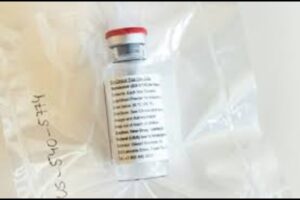Understanding Jungle Fever Treatment: Current Procedures and Future Directions
Introduction

Malaria Treatment, a lifestyles-threatening illness because of the Plasmodium parasites and transmitted through the chomps of infected Anopheles mosquitoes, stays a critical worldwide well being mission. In spite of substantial advances in the control and avoidance of jungle fever, the malady proceeds to persuade tens of millions of people yearly, specifically in sub-Saharan Africa.Successful treatment is pivotal in overseeing intestinal sickness, lessening mortality, and anticipating the spread of the infection. This article gives an in-depth examination of current jungle fever treatment techniques, the challenges confronted, and future headings in inquiry about and development.
Overview of Malaria
Five species of Plasmodium parasites cause malaria: P . falciparum, Kr. Vivacs , P. (1999). O well, P. Malaria, p. and No leis were written.Each species changes in terms of topographical dispersion, clinical seriousness, and treatment reaction. The infection is characterized by means of indications together with fever, chills, cerebral ache, and flu-like indications, which could boost to severe illness and, if untreated, cause demise.
Current Treatment Strategies
Antimalarial Medications

Antimalarial drugs are the foundation of intestinal sickness treatment. The choice of pharmaceutical depends on the Plasmodium species, the clinical seriousness of the malady, and territorial medicate resistance designs.The essential classes of antimalarial tablets consist of:
1. Artemis-Based Combination Treatments (Acts)
Acts are the first-line treatment for uncomplicated P. falciparum jungle fever. They combine artemisinin or its subsidiaries with another antimalarial sedate to improve viability and decrease the chance of resistance. Common Acts include:
Unfortunate-Aquamarine (AS-AQ): Compelling in a few locales, especially in Africa.
Unfortunate-Mannequin (AS-MQ): applied in regions where mannequin resistance isn’t always a vital hassle.
Acts are favored for their quick activity against the parasite and their capacity to clear the disease effectively.
2. Chlorine
Chlorine was once the standard remedy for P. Vivax and P. Malaria jungle fever. Be that as it is able to, resistance to chlorine has ended up extensive, in particular for P. Falciparum.In districts where resistance is less of an issue, chlorine remains a compelling treatment for uncomplicated P. vivax malaria.
3. Quinine and Quinidine
Quinine is a more seasoned sedate utilized for the treatment of extreme intestinal sickness and for cases where Acts are not accessible or not appropriate. It is ordinarily managed in combination with another antimalarial medication to move forward viability. Quinidine, a stereo isomer of quinine, is utilized intravenously for extreme jungle fever cases in a clinic setting.
4. Aquamarine
Aquamarine is utilized to anticipate the backslide of P. vivax and P. oval intestinal sickness by focusing on the hypnotizes (torpid liver stages). It is regularly managed after the introductory treatment with an ACT or chlorine. Its use requires cautious checking due to potential side impacts and contraindications, especially in people with glucose-6-phosphate dehydrogenase (G6PD) deficiency
Severe intestinal sickness treatment
Severe jungle fever requires prompt and serious treatment, more often than not in a clinic setting. The treatment regimen regularly involves:
Intravenous Unfortunate: Prescribed as the first-line treatment for serious intestinal sickness due to its fast activity and high efficacy.
Intravenous Quinine: An elective to unfortunate, utilized in cases where unfortunate is inaccessible or contraindicated.
In addition to antimalarial drugs, steady care is basic for overseeing complications such as frailty, organ disappointment, and cerebral malaria.
Challenges in Jungle fever treatment
Drug Resistance
Drug resistance is a prime difficulty in intestinal illness treatment. Resistance to chlorine and other antimalarial tablets has risen in distinctive districts, particularly in Southeast Asia. The advancement of resistance is impacted through variables inclusive of missing treatment regimens, imperfect dosing, and the broad usage of mono therapy.
Access to Treatment
Access to viable jungle fever treatment remains a noteworthy challenge in numerous endemic districts. Components such as taking a toll, accessibility, and healthcare foundation can restrain getting to opportune and suitable treatment. Endeavors to move forward include the dissemination of subsidized or free antimalarial drugs and the foundation of community well being programs.
Side Impacts and Medicate Interactions
Antimalarial drugs can have side impacts extending from gentle indications like sickness to serious responses such as unfavorably susceptible reactions or gastrointestinal unsettling influences. Moreover, medication intelligence can complicate treatment, especially in patients with coexisting well being conditions or those taking other medications.
Adherence to Treatment
Ensuring adherence to endorsed treatment regimens is pivotal for the compelling administration of intestinal sickness. Components impacting adherence incorporate the complexity of the treatment regimen, side impacts, and persistent understanding of the significance of completing the full course of medication.
Future bearings in intestinal sickness treatment
New Antimalarial Drugs

Research is progressing to create unused antimalarial drugs that can overcome existing resistance and give more viable treatment choices. A few promising candidates include:
KAE609 (programing): A novel antimalarial medicate with a one-of-a-kind instrument of activity that targets the parasite’s vitality production.
P218: A promising candidate for the treatment of both uncomplicated and serious intestinal sickness, with potential benefits in avoiding the improvement of resistance.
Vaccines:The improvement of jungle fever immunization speaks to a critical breakthrough in the battle against the illness. The RTS,S/AS01 (RTS,S) immunization, created by Glaxo Smith Kline, has appeared halfway viable in clinical trials and is right now being utilized in pilot programs in a few African nations. Continuously investigate points to move forward the viability of existing antibodies and create unused ones that give broader protection.
Combination Treatments and Strategies
Combining different antimalarial drugs with diverse instruments of activity can upgrade treatment adequacy and diminish the hazard of resistance. Investigating novel medication combinations and treatment procedures proceeds to be a priority.
Diagnostic Advancements
Improved symptomatic instruments can encourage early location and treatment of intestinal sickness, diminishing the hazard of serious cases and transmission. Propels in quick demonstrative tests (RDTs) and atomic demonstrative methods are making a difference to progress the precision and speed of jungle fever diagnosis.
Public Well being Initiatives
Public well being activities play a significant part in jungle fever treatment and control. Procedures such as insecticide-treated bed nets, indoor leftover splashing, and community well being instruction contribute to decreasing the rate of intestinal sickness and progressing treatment results. Collaborative endeavors between governments, non-governmental organizations, and universal offices are fundamental for progressing jungle fever control and treatment.
Conclusion
Malaria treatment has advanced essentially over a long time, with the improvement of successful antimalarial drugs, combination treatments, and steady care techniques. Be that as it may, challenges such as sedate resistance, getting to treatment, and adherence stay basic concerns. Progressing inquires about and development in sedate improvement, immunization inquire about, and demonstrative progressions are basic for making strides in jungle fever treatment and control.
Efforts to combat intestinal sickness require a multifaceted approach, counting proceeded speculation in inquire about, reinforcing healthcare frameworks, and executing comprehensive open well being procedures. By tending to these challenges and seeking after inventive arrangements, the worldwide community can make a noteworthy advance in the battle against intestinal sickness, eventually working towards the objective of annihilation.
